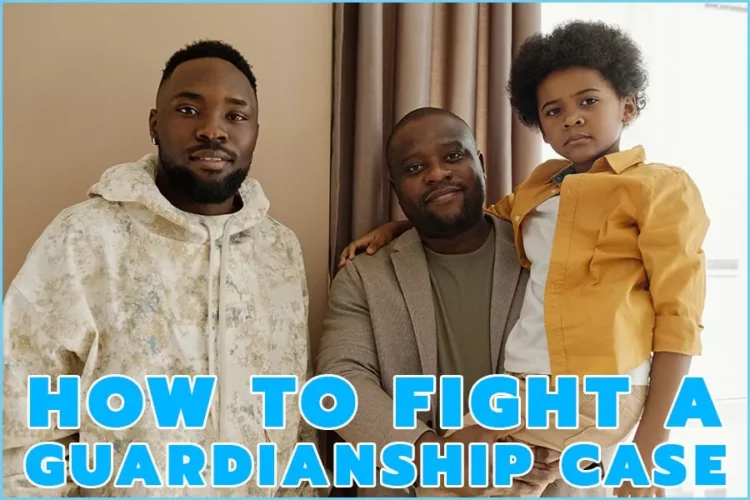The state’s courts usually have the power to appoint guardians for incapacitated individuals. An incapacitated person can be a threat to themselves. They can’t adequately provide for their health, nutrition, physical safety, housing, etc.
Today, there are many contested guardianships. Thus judges have to make difficult decisions daily. Many individuals are unhappy with their guardianship and file against it daily.
So is it possible for one to fight a guardianship case and win? The article has all the important information you need but firstly, let’s answer the question.
How to Fight a Guardianship Case
Firstly, note that you must be present in the hearing to fight a guardianship case effectively. However, before this, you must adequately prepare, preferably with a lawyer’s help.
At the hearing, you should present valid and strong evidence. It’s the most important factor and will help the court decide whether you still need a guardian or not. Additionally, you can ask people that know you and your abilities to come and testify on your behalf.
Additional Information
The court that created a guardianship has the power to modify, terminate or replace the guardianship.
If you have a lawyer, the lawyer can file a court motion. However, note that it’s possible to request for hearing without a lawyer’s help.
If you don’t have a lawyer, you’ll have to submit a complaint to the court. However, you’ll have to address it to the court administrator, clerk, or guardianship monitoring program. The guardian complaint form is usually available on the court’s website.
If you are only making a complaint, writing a letter will be better than using the complaint form. Overall, the written complaint should include:
- The guardianship court case number
- Name and address of the person with the guardian
- Name and address of the individual making a complaint
- Facts supporting the complaint such as:
- Guardians name and address
- The place and time of guardianship creation
- Valid reasons why you need change or termination of guardianship
- The changes that have occurred since the guardianship
The Steps Of Fighting A Guardianship Agreement
1. Filling a Petition
Firstly, note that the steps do vary depending on the individual and the laws of their state. Generally, most guardianship cases are initiated by filing a petition. You should address the petition to the court that made the guardianship decision.
So what’s a petition? It’s simply a legal document that asks the court to end, limit or change the guardianship agreement.
Plus, you can submit several other documents along with the petition. However, the documents vary according to your local court rules and state law.
For example, some courts will need evidence that shows the parent is fit to take care of the child. The evidence will include a stable home environment, rehabilitation certificates, bank accounts, etc.
After successful paperwork filling and payment of application fees, the petitioner will get their stamped submission copies. These copies are usually available from the court’s clerk.
2. Inform All Interested Parties
If you’re the petitioner, ensure to mail the stamped copies to all interested parties like the guardian.
However, remember to retain one copy for yourself. After successfully mailing the documents to interested parties, the petitioner must file proof of service with the court.
3. Court Hearing
The court clerk schedules a court hearing where the petitioner must be available. During this hearing, the court will decide about the guardianship agreement. By all means, the court’s decision is always in the ward’s best interest.
Therefore if your evidence is solid, the court will order for reversal or revocation of the guardianship agreement. But if the court decision doesn’t favor the petitioner, then the petitioner has the right to appeal. However, you should note that the ruling for guardianship cases varies between adults and children.
What are Your Rights at The Hearing?
You, as the petitioner, have the right to:
- Have a lawyer and be presented by the lawyer.
- Be present at the hearing.
- Present evidence and question the witnesses.
- Inform the judge that you don’t need a guardian.
- Request the jury to decide the case instead of the judge.
- You can request that the hearing happens in private.
- Request the judge to choose an independent expert to examine you and give a report as to whether you need a guardian or not.
- Inform the judge of who you’d love as your guardian if they decide that you still need one.
What Is A Guardianship Agreement?
A guardianship is a legal relationship between the guardian (appointed) and the incapacitated person (ward).
The ward is usually a child or minor below age eighteen in most instances. However, some parents create a guardianship agreement to ensure that their child remains safe in case of anything.
A guardianship agreement is if parents can no longer be able to care for their children. It can be due to incarceration, incapacitation, death, etc.
However, it’s also possible for the court to appoint a guardian for an adult. For example, the adult is incapacitated because of injury or illness or is mentally disabled.
The primary role of the guardian is to offer protection and care to the ward. In addition, they can make legal decisions for them. Consequently, there are two ways of selecting guardians. The selection can happen in court.
Alternatively, it can be through a legal document known as a “guardianship agreement. With the (guardianship) agreement, the guardian gets certain absolute rights. Meaning they can make important decisions for their wards.
The agreement comes in different forms: an affidavit, a will, or a standalone document. In addition, the party that appoints the guardian can use forms given by a state agency or local court.
You should note that each state has its requirements and procedures for guardianship. Additionally, the terms in guardianship usually differ depending on the agreement. Overall the appointee and ward should have unique and similar needs to their circumstances.
Therefore it’s advisable to have an attorney review any guardianship agreement created using standard court forms.
When Can The Court End, Limit, Or Change Guardianship
The court has the power to end guardianship if it’s no longer necessary. For example, the court will automatically terminate guardianship if the incapacitated person can take care of themselves or their property.
In another happening, the court will limit guardianship if the incapacitated person requires help in certain life areas. For example, if they only have an issue with personal finances.
Lastly, the court can also change guardianship when necessary. For example, when the guardian neglects their duties or can no longer do them because of death etc.
Frequently Asked Questions
1. If the court appoints a guardian, will the guardian do what the ward asks?
The guardian needs to respect and honor the ward’s wishes and support your independence. They should make decisions like you could have made if competent enough.
Therefore the guardian should use your wishes as guidance to make decisions in your best interest.
2. What are the other options besides guardianship?
If you have no disabilities, there’s no other option than guardianship. Amazingly guardianship can be limited in several ways to fit your needs perfectly. You can ask the court to limit the guardian’s power during the hearing anyway. For example, if you’d also like to make some decisions.
3. What does the court do in this hearing?
The court will give a fair judgment and the petitioner’s best interest at the hearing. However, the hearing procedures vary according to the state. You can contact the court’s county clerk for additional information on what happens during hearings.
4. How will one know if there’s a request for legal guardianship over them?
According to US law, there must be a court hearing to decide whether you need a guardian or not. The law also states that you must receive a written notice within 14 days before the court hearing. Immediately contact a lawyer if you receive a notice that someone is seeking a guardian for you.
5. Does the incapacitated person have the right to a lawyer?
Before hearing, the court will notify the person about their right to be represented by a lawyer. Any incapacitated person has the right to choose any lawyer. Generally, an incapacitated person has the right to be represented by a counsel during the hearing.
6. Where can one get more information about guardianship cases?
If you need any additional information, contact the superior court clerk. However, you should only contact a clerk from the court that created the guardianship.
Conclusion
An involuntary guardianship is a serious issue; thus, you need to know “how to fight a guardianship case.” Nobody is willing to give up their civil liberties and rights in today’s world. People feel offended when another person goes to court alleging that they aren’t competent and need guardianship.
Amazingly, you can fight guardianship. However, there are important things that the court considers in the guardianship proceedings. They include the welfare, safety, and health of the person alleged incapacitated.










